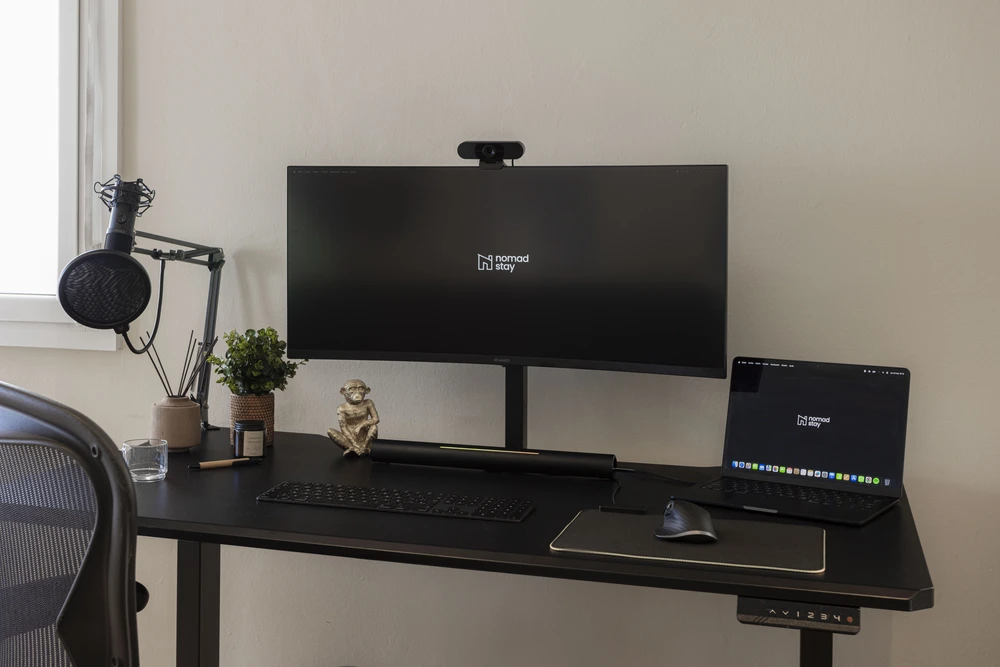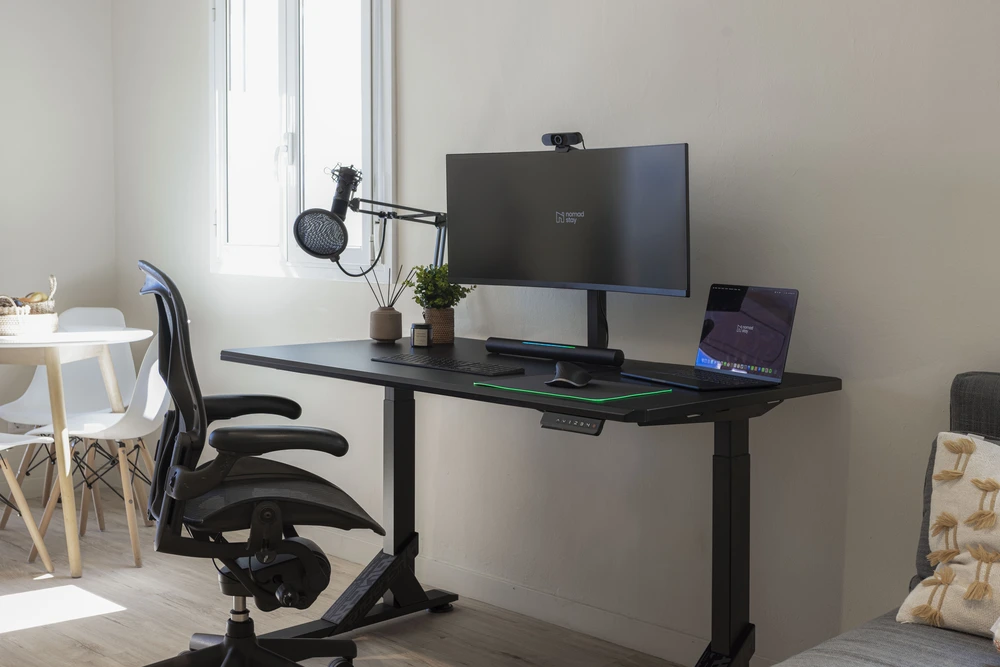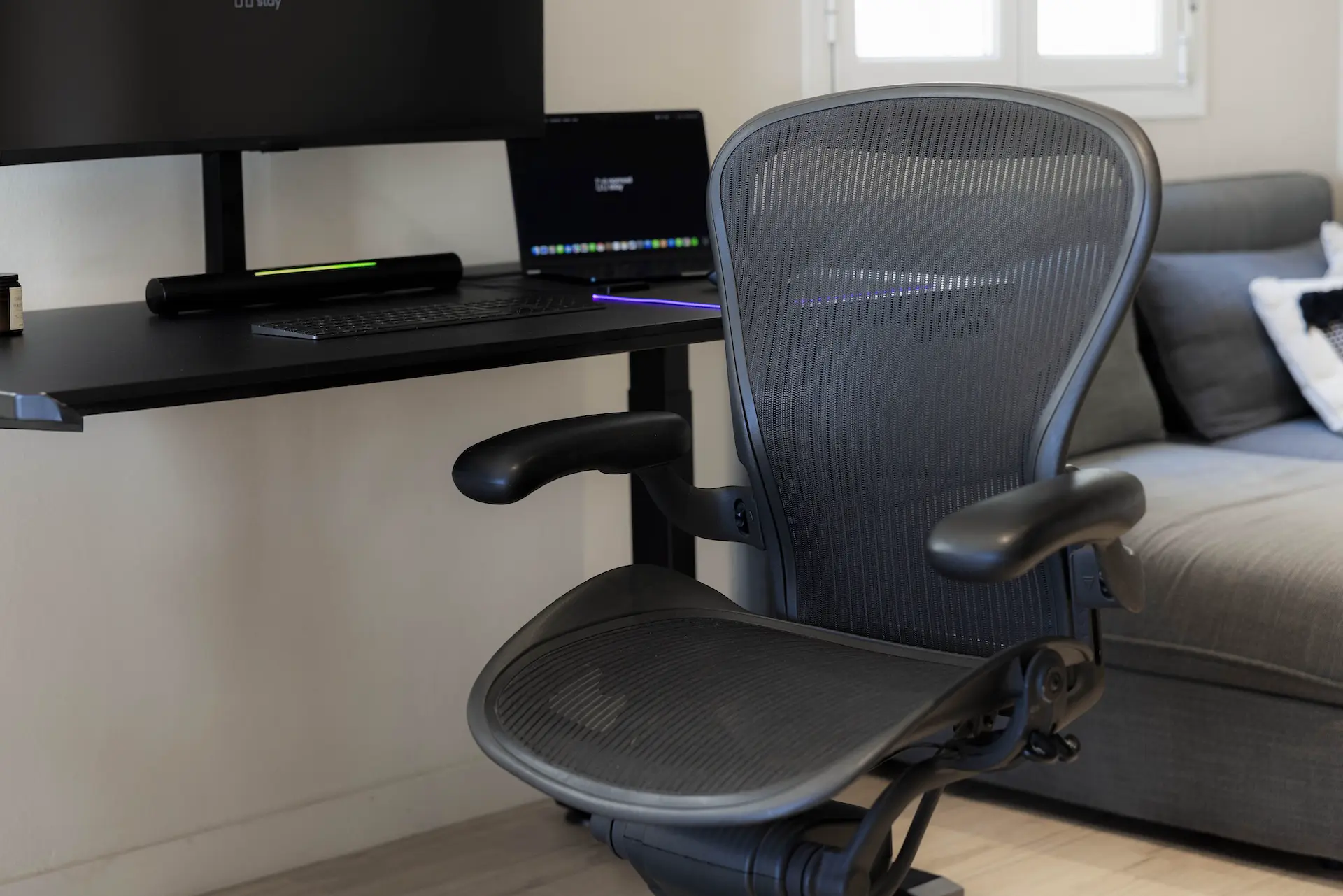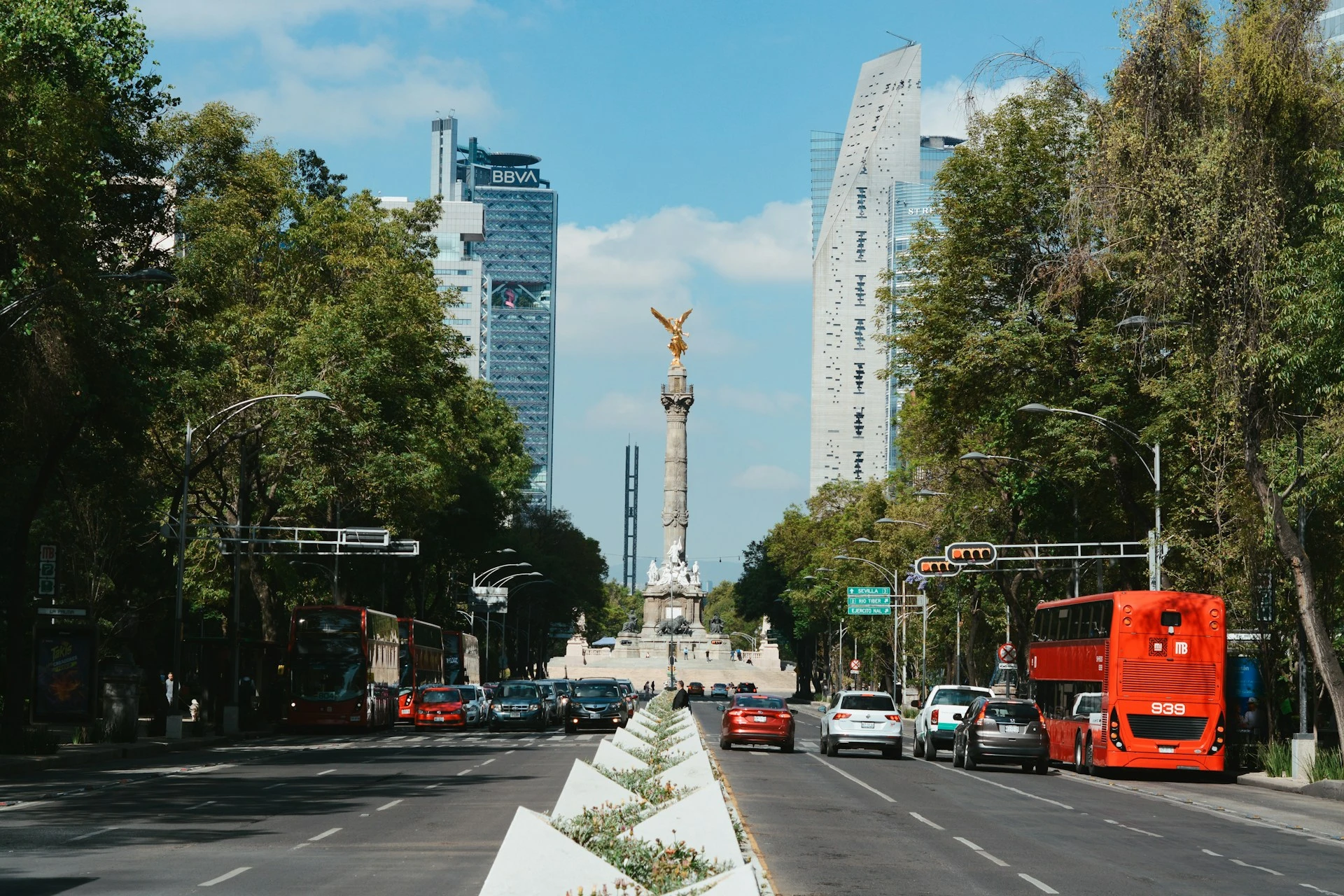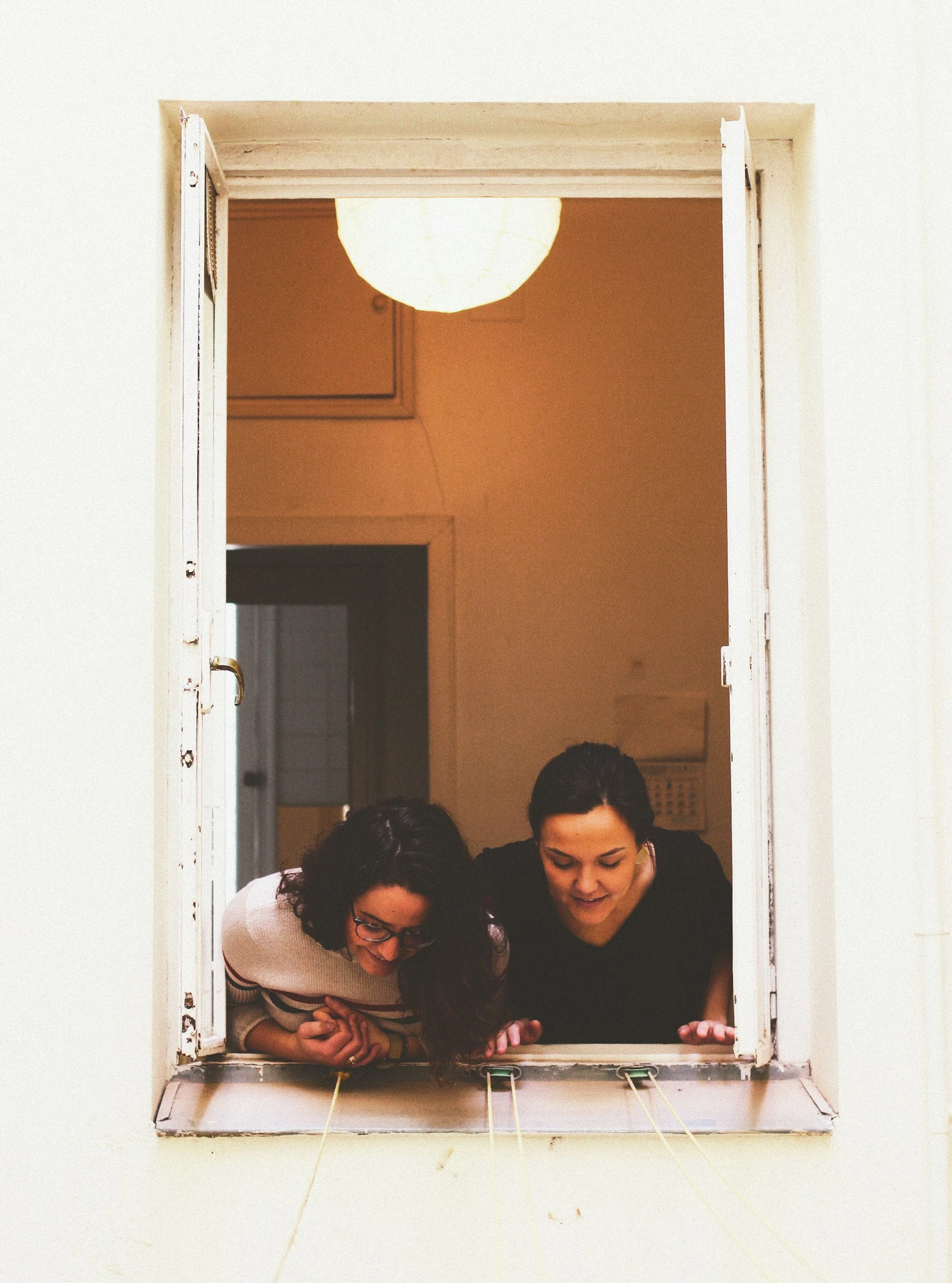5 Best European Cities for Digital Nomads 2025
Explore the top 5 European cities for remote workers in 2025, highlighting living costs, internet speed, and lifestyle perks.

<section class="mb-12">
<h2 id="heading-0" class="text-3xl font-bold tracking-tighter sm:text-4xl mb-6">5 Best European Cities for Remote Workers in 2025</h2>
<p class="text-base leading-7 mb-4">Looking for the perfect European city to work remotely in 2025? Here's a quick rundown of the top 5 spots:</p>
<ol class="list-decimal pl-6 space-y-2 mb-6">
<li>Lisbon, Portugal</li>
<li>Berlin, Germany</li>
<li>Tallinn, Estonia</li>
<li>Barcelona, Spain</li>
<li>Copenhagen, Denmark</li>
</ol>
<p class="text-base leading-7 mb-4">These <a href="https://rentremote.com/blog/top-cities-with-reliable-internet-for-nomads" class="text-cornflower-500 hover:text-cornflower-600 font-medium">cities</a> stand out for remote workers due to the following factors:</p>
<ul class="list-disc pl-6 space-y-2 mb-6">
<li>Affordable living costs (except Copenhagen)</li>
<li>Fast, reliable internet</li>
<li>Abundant coworking spaces</li>
<li>Rich culture and quality of life</li>
<li>Digital nomad-friendly visa options</li>
</ul>
<p class="text-base leading-7 mb-4">Quick comparison:</p>
<div class="overflow-x-auto mb-6">
<table class="w-full border-collapse">
<thead>
<tr class="bg-mist-500">
<th class="border border-gray-200 px-4 py-2 text-left">City</th>
<th class="border border-gray-200 px-4 py-2 text-left">Monthly Costs</th>
<th class="border border-gray-200 px-4 py-2 text-left">Internet Speed</th>
<th class="border border-gray-200 px-4 py-2 text-left">Digital Nomad Visa</th>
</tr>
</thead>
<tbody>
<tr class="bg-white">
<td class="border border-gray-200 px-4 py-2">Lisbon</td>
<td class="border border-gray-200 px-4 py-2">€1,500-2,000</td>
<td class="border border-gray-200 px-4 py-2">25 Mbps</td>
<td class="border border-gray-200 px-4 py-2">Yes, €3,280/month income</td>
</tr>
<tr class="bg-cream-500">
<td class="border border-gray-200 px-4 py-2">Berlin</td>
<td class="border border-gray-200 px-4 py-2">€1,500-2,000</td>
<td class="border border-gray-200 px-4 py-2">90 Mbps</td>
<td class="border border-gray-200 px-4 py-2">3-month freelance visa</td>
</tr>
<tr class="bg-white">
<td class="border border-gray-200 px-4 py-2">Tallinn</td>
<td class="border border-gray-200 px-4 py-2">Under €2,000</td>
<td class="border border-gray-200 px-4 py-2">60 Mbps</td>
<td class="border border-gray-200 px-4 py-2">Yes, €3,500/month income</td>
</tr>
<tr class="bg-cream-500">
<td class="border border-gray-200 px-4 py-2">Barcelona</td>
<td class="border border-gray-200 px-4 py-2">€1,500-2,500</td>
<td class="border border-gray-200 px-4 py-2">120 Mbps</td>
<td class="border border-gray-200 px-4 py-2">Yes, €2,334/month income</td>
</tr>
<tr class="bg-white">
<td class="border border-gray-200 px-4 py-2">Copenhagen</td>
<td class="border border-gray-200 px-4 py-2">€2,000-3,000</td>
<td class="border border-gray-200 px-4 py-2">120 Mbps</td>
<td class="border border-gray-200 px-4 py-2">No specific visa</td>
</tr>
</tbody>
</table>
</div>
<p class="text-base leading-7 mb-4">Each city offers a unique blend of work opportunities and lifestyle perks. Lisbon and Barcelona provide beach vibes, Berlin has a thriving arts scene, Tallinn is tech-forward, and Copenhagen excels in work-life balance.</p>
<p class="text-base leading-7 mb-4">Choose based on your budget, desired lifestyle, and visa needs. With options from Mediterranean charm to Scandinavian efficiency, there's a perfect remote work city for everyone in Europe.</p>
</section>
<section class="mb-12">
<h2 class="text-2xl font-bold mb-4">Introduction to Digital Nomadism</h2>
<p class="text-base leading-7 mb-6">Digital nomadism has become a popular lifestyle choice for many individuals, offering the freedom to work remotely and explore new destinations. As a digital nomad, you can experience different cultures, meet new people, and enjoy a better work-life balance. With the rise of remote work, many European cities have become attractive destinations for digital nomads, offering a unique blend of history, culture, and modern amenities. In this article, we will explore the best European cities for digital nomads, considering factors such as cost of living, internet speed, and visa rules.</p>
</section>
<section class="mb-12">
<h2 class="text-2xl font-bold mb-4">Factors to Consider for Digital Nomads</h2>
<p class="text-base leading-7 mb-6">When choosing a digital nomad destination, there are several factors to consider. These include the cost of living, availability of coworking spaces, internet speed, and visa rules. Additionally, digital nomads should research the local culture, healthcare system, and tax benefits to ensure a smooth transition. Some European cities, such as Lisbon and Barcelona, offer a specific digital nomad visa, making it easier for remote workers to settle and work in the city. Other factors, such as the city's vibe, outdoor activities, and networking opportunities, can also impact the digital nomad experience.</p>
</section>
<section class="mb-12">
<h2 id="heading-1" class="text-2xl font-bold mb-4">Related video from YouTube</h2>
<div class="aspect-video w-full bg-mist-500 flex items-center justify-center rounded-lg mb-6">
<p class="text-taupe-500">Video placeholder</p>
</div>
</section>
<section class="mb-12">
<h2 id="heading-2" class="text-3xl font-bold tracking-tighter sm:text-4xl mb-6">1. Lisbon, Portugal</h2>
<p class="text-base leading-7 mb-4">Lisbon's pulling in remote workers like a magnet. Why? It's got that sweet spot of cheap living, fast internet, and a lifestyle that'll make you want to stay forever. Let's dive into what makes Lisbon tick for digital nomads in 2025.</p>
<p class="font-bold text-lg mb-2">Living Costs: Still a Bargain</p>
<p class="text-base leading-7 mb-4">Lisbon's not as dirt-cheap as it used to be, but it's still way easier on your wallet than most European hotspots. Here's what you're looking at each month:</p>
<div class="overflow-x-auto mb-6">
<table class="w-full border-collapse">
<thead>
<tr class="bg-mist-500">
<th class="border border-gray-200 px-4 py-2 text-left">Expense</th>
<th class="border border-gray-200 px-4 py-2 text-left">Cost (€)</th>
</tr>
</thead>
<tbody>
<tr class="bg-white">
<td class="border border-gray-200 px-4 py-2">Rent (1-bedroom, city center)</td>
<td class="border border-gray-200 px-4 py-2">900-1,200</td>
</tr>
<tr class="bg-cream-500">
<td class="border border-gray-200 px-4 py-2">Utilities</td>
<td class="border border-gray-200 px-4 py-2">115</td>
</tr>
<tr class="bg-white">
<td class="border border-gray-200 px-4 py-2">Internet</td>
<td class="border border-gray-200 px-4 py-2">30-40</td>
</tr>
<tr class="bg-cream-500">
<td class="border border-gray-200 px-4 py-2">Public Transport</td>
<td class="border border-gray-200 px-4 py-2">40</td>
</tr>
<tr class="bg-white">
<td class="border border-gray-200 px-4 py-2">Groceries</td>
<td class="border border-gray-200 px-4 py-2">200-340</td>
</tr>
<tr class="bg-cream-500">
<td class="border border-gray-200 px-4 py-2">Coworking Space</td>
<td class="border border-gray-200 px-4 py-2">100-250</td>
</tr>
</tbody>
</table>
</div>
<p class="text-base leading-7 mb-6">Want to save some cash? Skip the fancy city center and check out neighborhoods like Alfama. You'll get that old-school Lisbon vibe and slash your rent in half.</p>
<p class="font-bold text-lg mb-2">Internet and Workspaces: You're Covered</p>
<p class="text-base leading-7 mb-4">Lisbon's internet is fast. We're talking 120 Mbps fast. And with over <a href="https://rentremote.com/blog/top-coworking-spaces-in-lisbon-for-digital-nomads" class="text-cornflower-500 hover:text-cornflower-600 font-medium">50 coworking spaces</a>, you're spoiled for choice.</p>
<p class="text-base leading-7 mb-2">A few spots worth checking out:</p>
<ul class="list-disc pl-6 space-y-3 mb-6">
<li>
<a href="https://secondhome.io/location/lisboa/" class="text-cornflower-500 hover:text-cornflower-600 font-medium">Second Home Lisboa</a>: It's like working in a jungle, but with Wi-Fi. €235/month for a hot desk.
</li>
<li>
<a href="https://ideaspaces.pt/" class="text-cornflower-500 hover:text-cornflower-600 font-medium">IDEA Spaces</a>: Comfy chairs and flexible desks. Starts at €120/month.
</li>
<li>
<a href="https://lisbon.impacthub.net/" class="text-cornflower-500 hover:text-cornflower-600 font-medium">Impact Hub Lisbon</a>: Quiet, spacious, and great for networking, with options for <a href="https://rentremote.com/c/furnished-apartments-lisbon" class="text-cornflower-500 hover:text-cornflower-600 font-medium">furnished apartments in Lisbon</a>. From €30/month.
</li>
</ul>
<p class="text-base leading-7 mb-6">Want a ready-made setup? <a href="https://rentremote.com/" class="text-cornflower-500 hover:text-cornflower-600 font-medium">Rent Remote</a> hooks you up with apartments that double as offices. No fuss, just <a href="https://rentremote.com/how-it-works" class="text-cornflower-500 hover:text-cornflower-600 font-medium">plug in and work</a>.</p>
<p class="font-bold text-lg mb-2">Life Beyond the Laptop</p>
<p class="text-base leading-7 mb-4">Lisbon's not just about work. It's about living:</p>
<ul class="list-disc pl-6 space-y-2 mb-6">
<li>Sun? Check. 300+ days a year.</li>
<li>Beaches? Right on your doorstep.</li>
<li>People? A melting pot of locals and expats.</li>
<li>Culture? Oozing from every cobblestone.</li>
<li>Great weather? Absolutely, making it perfect for both work and leisure.</li>
</ul>
<p class="text-base leading-7 mb-6">The Portuguese know how to balance work and play. It's perfect for the <a href="https://rentremote.com/blog/porto-vs-seattle-why-porto-offers-superior-value-for-remote-workers" class="text-cornflower-500 hover:text-cornflower-600 font-medium">remote work lifestyle</a>.</p>
<p class="font-bold text-lg mb-2">Visa Situation: They Want You Here</p>
<p class="text-base leading-7 mb-4">Portugal's rolled out the red carpet with their Digital Nomad Visa. Show them you're making at least €3,280 a month, and you're in.</p>
<div class="bg-cream-500 rounded-lg p-6 mb-6 border-l-4 border-garnet-500">
<p class="text-base leading-7 italic">As local immigration lawyer Joana Silva puts it: "This visa is Portugal saying 'Hey, digital nomads, come on over!' It's changing the game for remote workers eyeing Lisbon."</p>
</div>
<p class="text-base leading-7 mb-6">Bottom line? Lisbon in 2025 is where it's at for remote workers. It's affordable, connected, and packed with that Mediterranean magic. Whether you're dropping in for a few months or looking to put down roots, Lisbon's got you covered.</p>
</section>
<section class="mb-12">
<h2 id="heading-3" class="text-3xl font-bold tracking-tighter sm:text-4xl mb-6">2. Berlin, Germany</h2>
<p class="text-base leading-7 mb-4">Berlin's pulling in digital nomads and remote workers like never before in 2025. It's a city where history meets innovation, creating a vibe that's hard to resist for those looking to shake up their work routine.</p>
<p class="font-bold text-lg mb-2">Living Costs: Won't Break the Bank</p>
<p class="text-base leading-7 mb-4">Berlin's not as cheap as it used to be, but it's still a bargain compared to other big European cities. Here's what you might spend each month:</p>
<div class="overflow-x-auto mb-6">
<table class="w-full border-collapse">
<thead>
<tr class="bg-mist-500">
<th class="border border-gray-200 px-4 py-2 text-left">Expense</th>
<th class="border border-gray-200 px-4 py-2 text-left">Cost (€)</th>
</tr>
</thead>
<tbody>
<tr class="bg-white">
<td class="border border-gray-200 px-4 py-2">Rent (1-bedroom, city center)</td>
<td class="border border-gray-200 px-4 py-2">900-1,200</td>
</tr>
<tr class="bg-cream-500">
<td class="border border-gray-200 px-4 py-2">Utilities</td>
<td class="border border-gray-200 px-4 py-2">200-250</td>
</tr>
<tr class="bg-white">
<td class="border border-gray-200 px-4 py-2">Internet</td>
<td class="border border-gray-200 px-4 py-2">30-40</td>
</tr>
<tr class="bg-cream-500">
<td class="border border-gray-200 px-4 py-2">Public Transport</td>
<td class="border border-gray-200 px-4 py-2">86 (monthly pass)</td>
</tr>
<tr class="bg-white">
<td class="border border-gray-200 px-4 py-2">Groceries</td>
<td class="border border-gray-200 px-4 py-2">200-300</td>
</tr>
<tr class="bg-cream-500">
<td class="border border-gray-200 px-4 py-2">Coworking Space</td>
<td class="border border-gray-200 px-4 py-2">100-250</td>
</tr>
</tbody>
</table>
</div>
</section>
<div class="relative mt-12">
<div class="w-full border-t border-gray-300 mb-8"></div>
<div class="flex flex-col md:flex-row gap-6 justify-between">
<div>
<h3 class="text-xl font-bold mb-3">Explore More Remote Work Resources</h3>
<ul class="space-y-2">
<li><a href="#" class="text-cornflower-500 hover:text-cornflower-600 font-medium">Digital Nomad Visa Guide</a></li>
<li><a href="#" class="text-cornflower-500 hover:text-cornflower-600 font-medium">Top Coworking Spaces in Europe</a></li>
<li><a href="#" class="text-cornflower-500 hover:text-cornflower-600 font-medium">Remote Work Equipment Essentials</a></li>
</ul>
</div>
<div>
<a href="https://rentremote.com/how-it-works" class="inline-flex items-center justify-center px-5 py-3 border border-transparent text-base rounded-full text-white bg-carmine-500 hover:bg-carmine-600 focus:outline-none focus-visible:outline-2 focus-visible:outline-offset-2 focus-visible:outline-carmine-500 active:text-white/70 font-display font-bold">
Find Work-Ready Accommodations
</a>
</div>
</div>
<!-- Vector Decorations -->
<div class="absolute -bottom-20 right-10 opacity-10 rotate-12 hidden md:block">
<img src="/images/vectors/vector-1.svg" alt="" class="w-32 h-32" aria-hidden="true">
</div>
<div class="absolute -bottom-24 -left-5 opacity-10 -rotate-12 hidden md:block">
<img src="/images/vectors/vector-5.svg" alt="" class="w-40 h-40" aria-hidden="true">
</div>
</div>









